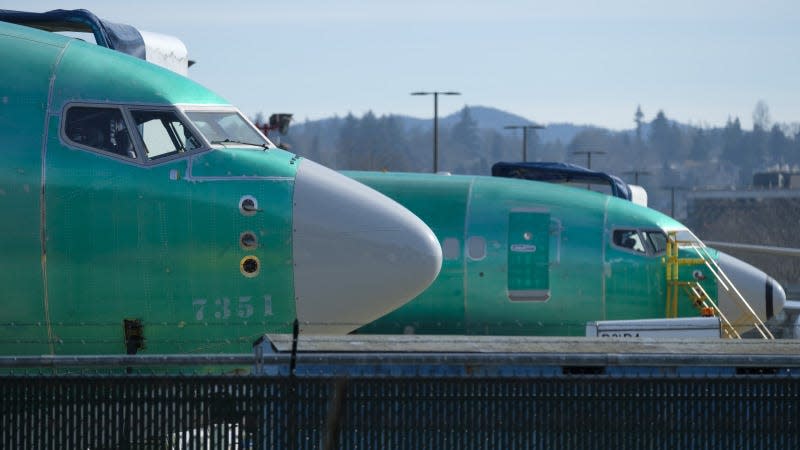Hotel Keycards And Dawn Dish Soap Used In 737 Max Production As Boeing Fails 33 FAA Safety Checks

Boeing is having a rough time of it right now, with parts falling off its planes left, right and center. Just last week, a wheel came loose and smashed through a car, and earlier this year the door from a 737 Max aircraft broke off mid-flight. That mid-air disaster sparked an audit from the Federal Aviation Administration, which has gone far from well.
The audit, which is kind of like a quality control inspection for large companies, analyzed 89 aspects of Boeing’s 737 Max production, as well as 13 product audits at Spirit AeroSystems, which produces fuselages for the aircraft.
Of the inspections carried out, Boeing failed 33 of them and Spirit failed a further seven, reports the New York Times. Not good. The failed tests highlighted more than 95 instances of alleged noncompliance, reports the Times. According to the site:
At one point during the examination, the air-safety agency observed mechanics at Spirit using a hotel key card to check a door seal, according to a document that describes some of the findings. That action was “not identified/documented/called-out in the production order,” the document said.
In another instance, the F.A.A. saw Spirit mechanics apply liquid Dawn soap to a door seal “as lubricant in the fit-up process,” according to the document. The door seal was then cleaned with a wet cheesecloth, the document said, noting that instructions were “vague and unclear on what specifications/actions are to be followed or recorded by the mechanic.”
The use of hotel keycards and Dawn dish soap in the production of a $100 million aircraft is alarming, and one that Spirit describes as a “nonconformity.” Now, company spokesperson Joe Buccino told the Times that the manufacturer was “reviewing” any identified issues for “corrective action.”

At parent company Boeing, however, the FAA has given the Washington-based company 90 days to address shortcomings in its quality control. As the Times explains:
The audit at Boeing was wide ranging, covering many parts of the 737 Max, including its wings and an assortment of other systems.
Many of the problems found by auditors fell in the category of not following an “approved manufacturing process, procedure or instruction,” according to the presentation. Some other issues dealt with quality-control documentation.
Boeing has so far not commented on the FAA’s findings in the audit process; however, its safety processes have repeatedly come under fire after a series of high-profile issues with the 737 Max aircraft. Last month, a report from Congress found “gaps in Boeing’s safety journey.”

 Yahoo Autos
Yahoo Autos 